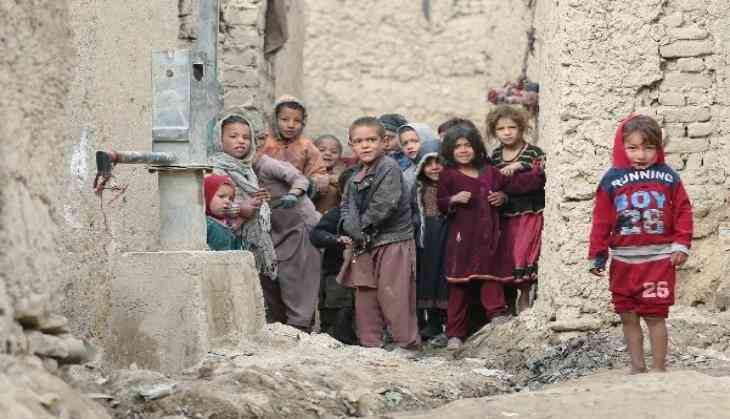
An estimated 3.2 million Afghan children under five are expected to suffer from acute malnutrition by the end of the year, UN agencies warned on Tuesday, adding that without immediate treatment, at least a million are at risk of dying.
Acute food insecurity is affecting 14 million people in Afghanistan who are without reliable access to water, food and basic health and nutrition services, following years of conflict and the economic crisis, which has been exacerbated following the Taliban takeover in August.
The alarm was sounded following a two-day visit to the city of Herat by Herve Ludovic De Lys, UN Children's Fund (UNICEF) Representative in Afghanistan and Mary-Ellen McGroarty, World Food Programme's (WFP) Afghanistan Representative and Country Director.
According to surveys by WFP, 95 per cent of households in Afghanistan are not consuming enough food, adults are eating less and skipping meals so their children can eat more.
"We have huge concerns about the desperate choices families are being forced to take," said McGroarty. "Unless we intervene now, malnutrition will only become more severe. The international community must release the funds they pledged weeks ago, or the impact could be irreversible."
Since the beginning of 2021, WFP has provided life-saving food and nutrition assistance to 8.7 million people, including treatment and prevention of malnutrition for nearly 400,000 pregnant and breastfeeding women and 790,000 children under five.
Close to four million people were reached in September alone. Additionally, this year, more than 210,000 children with severe acute malnutrition were provided with lifesaving treatment through UNICEF-supported services. Ready-to-use therapeutic food for more than 42,000 children and therapeutic milk for 5,200 children was also delivered to UNICEF partners in the past eight weeks.
(ANI)
Also Read: Hanjin Heavy Industry wins a shipbuilding order for 4 container ships worth $270 million


